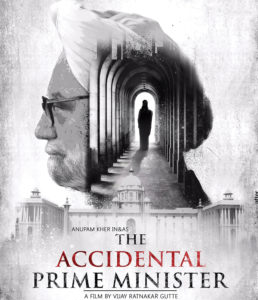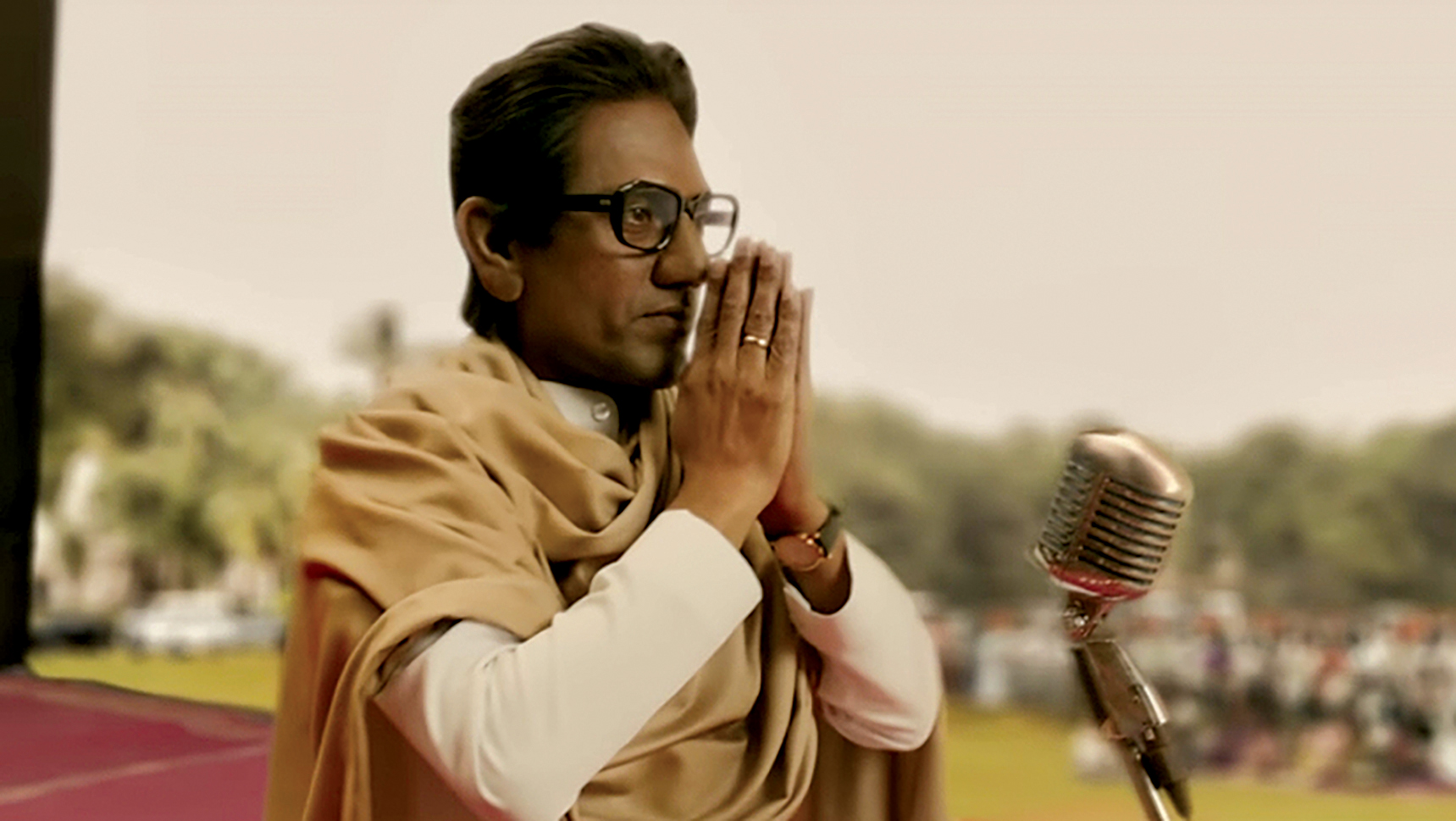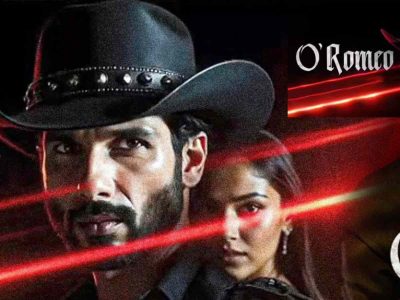The timing of a recent slew of ‘political’ and ‘nationalist’ films before the elections is not a coincidence
The scene in black and white shows Mumbai in the 1960s. A young Balasaheb Thackeray, played by Nawazuddin Siddiqui, goes inside a movie theatre. What starts as a funny cartoon suddenly takes the shape of a “black comedy” of sorts, showing a bald, thin man (who has “Marathi” written on his shirt) being oppressed by people from sects other than the one to which he belongs.
This is Abhijit Panse’s Thackeray, a film that unabashedly glorifies and propagates Thackeray’s ideals. The trailer itself proves it. It labels the Shiv Sena leader as “ideal”, “revolutionary”, “activist”, “fighter” and “leader”. And the film further attempts to establish these. So much so that Thackeray’s infamous comment directed towards South Indians—” Uthao lungi, bajao pungi”—was used in the film with a slight change: “Bajao pungi, hatao lungi”. Expressing his discontent towards this, well-known South actor Siddharth tweeted:
“Nawazuddin has repeated ‘Uthao lungi bajao pungi’ (lift the lungi and *’#$ him) in the film #Thackeray. Clearly hate speech against South Indians… In a film glorifying the person who said it! Are you planning to make money out of this propaganda? Stop selling hate! Scary stuff!”

The only good thing about Thackeray was Siddiqui’s flawless performance. But then there are other propaganda films like The Accidental Prime Minister where even the performances came out as mere mimics of the characters played on-screen. Directed by Vijay Gutte, the film has Anupam Kher in its titular role. He received a lot of flak for the way he portrayed Manmohan Singh, which came out as a caricature and was more like a mockery. Though the Congress approached the court and termed the film as propaganda for the BJP, the film’s release went ahead.
Based on a book by Sanjaya Baru, who served as the official spokesperson and media advisor to Manmohan Singh from May 2004 to August 2008, The Accidental Prime Minister was heavily criticised on several aspects. From Akshaye Khanna’s portrayal of Baru to how Singh was depicted as a puppet in the hands of the Gandhi family—the film came out as a campaign for the ruling party by highlighting the wrong-doings of the Opposition. So, the main question is: How “accidental” are the releases of such films ahead of the general elections?
Aditya Dhar’s Uri: The Surgical Strike starring Vicky Kaushal was appreciated by the audience but that does not make it any less of a propaganda film. It glorifies the surgical strike, representing the current government’s courageous act of defending the country, replete with dialogues like “Yeh naya Hindustan hai, yeh ghar mein ghusega bhi, aur marega bhi (This is a new India, it will infiltrate the house, as well as slay)” and “Waqt aa gaya hai, khoon ka badla khoon se lene ka (It is time to take revenge with blood)”. As The Wire said, “The more the government politicises the army by using its sacrifices to further its electoral objectives, the more it erodes the army’s potency, and hence its’ deterrent value.”
Aligarh scriptwriter Apurva Asrani also noted this surge in “political” films in Bollywood. He tweeted: “Overwhelmed by the pre-election line up of propaganda films. Never in my 23 career have I seen cinema used so cunningly to influence votes. And while I think censorship & bans are totally undemocratic, I wish some credible talents hadn’t sold their souls to the propaganda mills.”
Then comes the much talked about Manikarnika—a “nationalistic period film” where Kangana Ranaut portrays Queen Jhansi. It’s interesting to note that Ranaut has also openly supported Modi in the past. Thackeray’s director Abhijit Panse is a former Shiv Sena member and is now with the Maharashtra Navnirman Sena. Thackeray was also produced by Shiv Sena leader Sanjay Raut. The Accidental Prime Minister’s filmmaker Vijay Gutte was arrested for GST fraud in August 2018. His father Ratnakar Gutte is a sugar baron who was the BJP’s candidate from Maharashtra’s Gangakhed seat in 2014. The movie’s star Anupam Kher has been vocal about his admiration for the PM and his wife Kirron Kher is a BJP MP. The implications are clear.
Previously, Bollywood waved the saffron flag with films such as Padman, Gold, Toilet: Ek Prem Katha and Satyameva Jayate. Those were toned down versions of what we’re seeing today, especially just before the elections. In this context, it’s not surprising that the “planned PR” meeting between Modi and the Bollywood film fraternity met with plenty of criticism.

It doesn’t end here either. A biopic about Narendra Modi is in the works. Directed by Omung Kumar, the film will have Vivek Oberoi as Modi. Vivek’s father, Suresh Oberoi, has been a member of the BJP for over a decade. Moreover, Vivek Oberoi himself has been campaigning for the BJP since 2014 and was even invited to the PM’s swearing-in ceremony. Another Modi biopic was also announced, with BJP MP Paresh Rawal in the lead.
Only time will tell if these films will be propaganda pieces or not but given the BJP links, it isn’t hard to guess.




